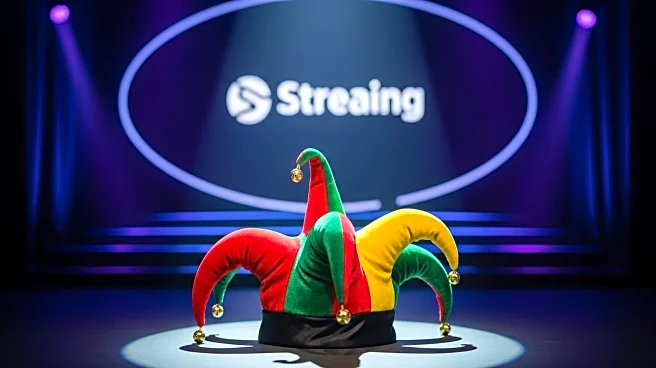What's Happening?
Comedy Central has decided to stop airing reruns of a 'South Park' episode titled 'Got a Nut,' which satirizes Charlie Kirk. The episode remains available for streaming on Paramount+. The episode, which premiered on August 6, features the character Clyde Donovan launching a podcast with controversial views, mimicking the format of an event where Kirk was killed. The episode includes a character dressed to resemble Kirk, and awards Clyde the 'Charlie Kirk Award for Young Master Debaters.' Kirk had previously reacted positively to the episode's teaser, acknowledging the cultural impact of his movement and expressing amusement at the portrayal.
Why It's Important?
The decision to pull the episode from Comedy Central highlights the sensitivity surrounding media portrayals of public figures, especially in light of recent events. This move may reflect broader concerns about the impact of satire on public discourse and the potential for such portrayals to influence public opinion. The episode's continued availability on Paramount+ suggests a complex balance between censorship and freedom of expression in media. The situation underscores the challenges faced by networks in managing content that intersects with real-world events and public figures.
What's Next?
The removal of the episode from Comedy Central may prompt discussions about the role of satire in media and its boundaries. Stakeholders, including media companies and public figures, might engage in debates over the appropriateness of such content. The episode's availability on streaming platforms could lead to increased viewership and further public discourse. Additionally, reactions from Kirk's supporters and critics may influence future programming decisions by networks.
Beyond the Headlines
This incident raises questions about the ethical responsibilities of media creators in portraying real-life events and figures. It also highlights the cultural power of satire in shaping public perceptions and the potential consequences of such portrayals. The episode's removal may reflect broader societal tensions regarding political discourse and the limits of comedic expression.











